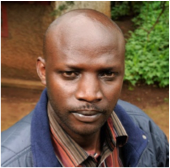Land/Region: Sri Lanka
Konflikt:
Organisation: Peace & Community Action
Arbeitsfeld: Trainings in Gewaltfreiheit; Versöhnung zw. den einstigen Konfliktparteien
T. Thayaparan, National Coordinator is a Founder member of „Peace and Community in Action“ (PCA) in Sri Lanka and has been National coordinator for the last seven years.
He has 15 years local and international experience of facilitating and training on conflict matters and non violent processes. He hold an MA in Peacebuilding and Conflict Transformation from the American University and an honorary doctorate from Ruhunu University. In 2009 Thaya received the Maja Khone International Peace Award for his international peace work.
Peace & Community Action (PCA) was formed in 1999. It grew out of Quaker Peace and Service (QPS) and was started by a group committed to helping people explore alternatives to the use of violence as a response to conflict. The organisation has been deeply influenced by Gandhian philosophy and Rosenburg’s ‘non-violent communication’ approaches.
PCA began as a grass root level peace organization and now has excellent networks and relationships in the communities it works with. At first we worked primarily in the predominantly Tamil and Muslim Eastern Province ;Ampara, Trincomalee and Puttalam Districts. Setting up offices in Matara in the last three years has given more balance by introducing our work to the predominantly Sinhala Southern Province.
We manage and deliver a mixture of community-based programmes showing participants the impact of using non-violence in their relationships and supporting them to learn and use these techniques in their own lives and work. We also run training courses for government officers and other NGOs on non violent approaches. We work with communities from all ethnic and religious backgrounds, frequently bringing together people whose groups are in conflict.
Most recently PCA has developed an ongoing partnership with the British Council which resulted in the Global Exchange Project.
WEBLINKS:


